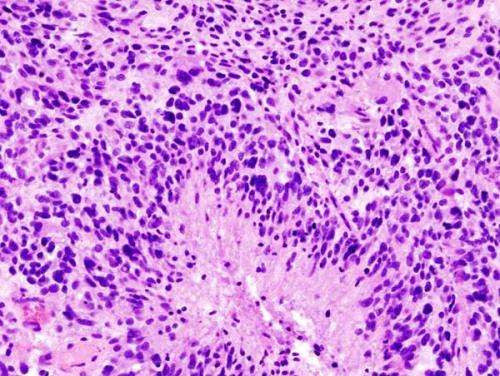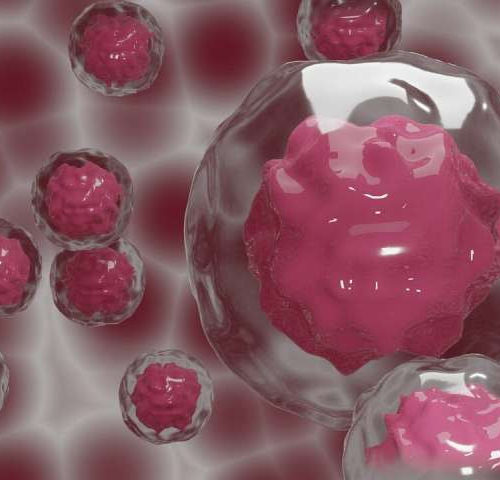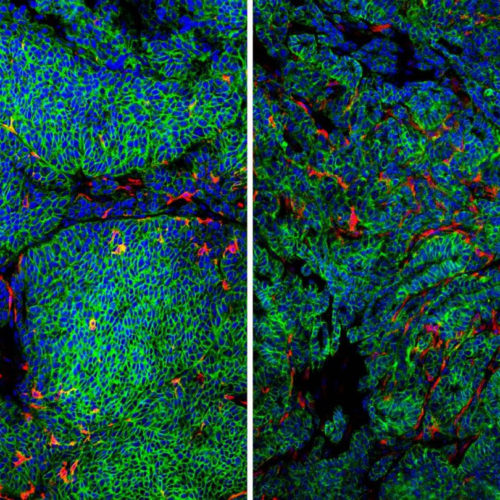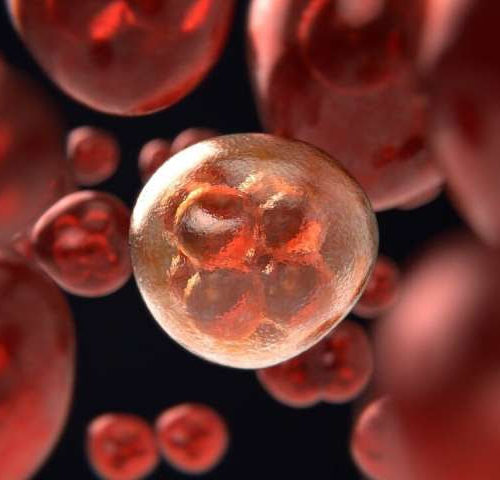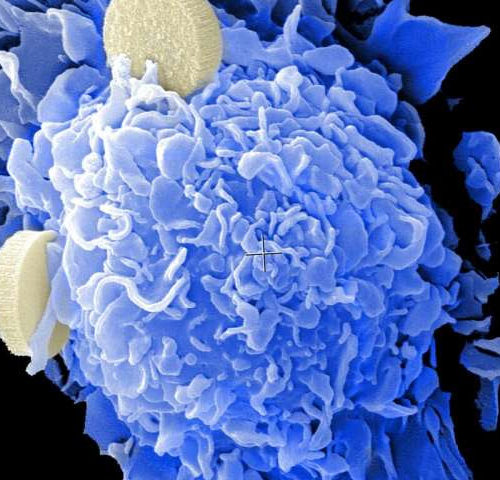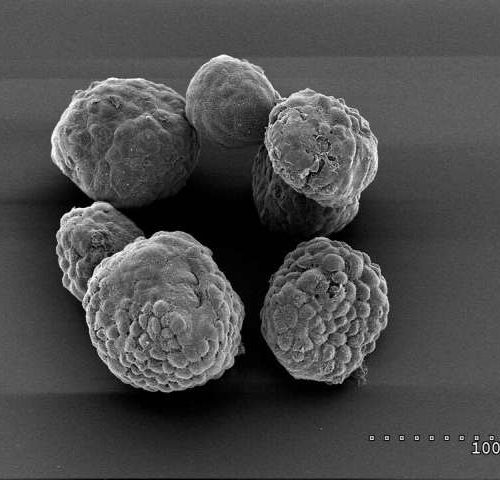Simplified recommendations reflect new developments in cervical cancer prevention AMERICAN CANCER SOCIETY An updated cervical cancer screening guideline from the American Cancer Society reflects the rapidly changing landscape of cervical cancer prevention in the United States, calling for less and more simplified screening. The guideline appears in the ACS’s flagship journal, CA: A Cancer Journal...
Tag: <span>cancer cells</span>
A new way to target cancers using ‘synthetic lethality’
by University of California – San Diego With advances in genome sequencing, cancer treatments have increasingly sought to leverage the idea of “synthetic lethality,” exploiting cancer-specific genetic defects to identify targets that are uniquely essential to the survival of cancer cells. Synthetic lethality results when non-lethal mutations in different genes become deadly when combined in...
Brain tumors may originate in a brain region distinct from where it becomes a lethal disease
by Children’s National Hospital A mouse model of glioblastoma, an aggressive type of cancer that can occur in the brain, suggests that this recalcitrant cancer originates from a pool of stem cells that can be a significant distance away from the resulting tumors. The findings of a new study, led by Children’s National Hospital researchers...
Researchers identify a cancer metabolic pathway that could be a valuable target for therapy
by Sonia Fernandez, University of California – Santa Barbara Fighting cancer often means employing a suite of techniques to target the tumor and prevent it from growing and spreading to other parts of the body. It’s no small feat—the American Cancer Society predicts roughly 1.8 million new cases of cancer in the country in 2020,...
Boosting immune memory could reduce cancer recurrence
UNIVERSITY OF PITTSBURGH FRANK DIXON CHAIR IN CANCER IMMUNOLOGY, UNIVERSITY OF PITTSBURGH SCHOOL OF MEDICINE, AND CO-LEADER, CANCER IMMUNOLOGY AND IMMUNOTHERAPY PROGRAM, UPMC HILLMAN CANCER CENTER. view more CREDIT: UNIVERSITY OF PITTSBURGH PITTSBURGH, July 15, 2020 – Blocking a newly identified “immune memory checkpoint” in immune cells could improve immunotherapy and help prevent cancers from...
How breast cancer cells sneak past local immune defenses
COLD SPRING HARBOR LABORATORY PHOTOMICROGRAPHS OF MOUSE TUMORS EXPRESSING A FACTOR THAT SUPPRESSES A LOCAL IMMUNE RESPONSE (LEFT) AND ONE THAT PERMITS THAT IMMUNE RESPONSE (RIGHT). RESEARCHERS DISCOVERED THAT CANCER CELLS EXPRESSING THE PROTEIN… view more CREDIT: XUE-YAN HE, EGEBLAD LAB, CSHL. Cold Spring Harbor Laboratory (CSHL) Associate Professor Mikala Egeblad and her colleagues describe...
How metastatic cancer survives in the subarachnoid space
by Bob Yirka , Medical Xpress A team of researchers working at Memorial Sloan Kettering Cancer Center in New York has discovered how metastatic cancer is able to survive in the hostile subarachnoid space. In their paper published in the journal Science, the group describes RNA sequencing studies they conducted with patients with leptomeningeal metastases...
Study finds fatty acid that kills cancer cells
by Washington State University Researchers have demonstrated that a fatty acid called dihomogamma-linolenic acid, or DGLA, can kill human cancer cells. The study, published in Developmental Cell on July 10, found that DGLA can induce ferroptosis in an animal model and in actual human cancer cells. Ferroptosis is an iron-dependent type of cell death that...
Drug treatment could improve effectiveness of immunotherapy for cancer patients
PROVIDENCE, R.I. [Brown University] — While immunotherapy — a form of treatment that uses the body’s immune system to recognize, attack and kill tumor cells — has given hope to people across the globe, it fails in a significant proportion of cancer patients. However, a new study published in the Nature journal Cell Death Discovery...
Blocking cholesterol storage could stop growth of pancreatic tumors
by Cold Spring Harbor Laboratory Organoids of mouse pancreatic tumor cells grown “ex vivo,” outside the body. Organoids are used as a model system to study tumor biology and treatments. Credit: Tobiloba Oni, Tuveson lab/CSHL Scientists at Cold Spring Harbor Laboratory (CSHL) have found that they can stop the growth of pancreatic cancer cells by...


